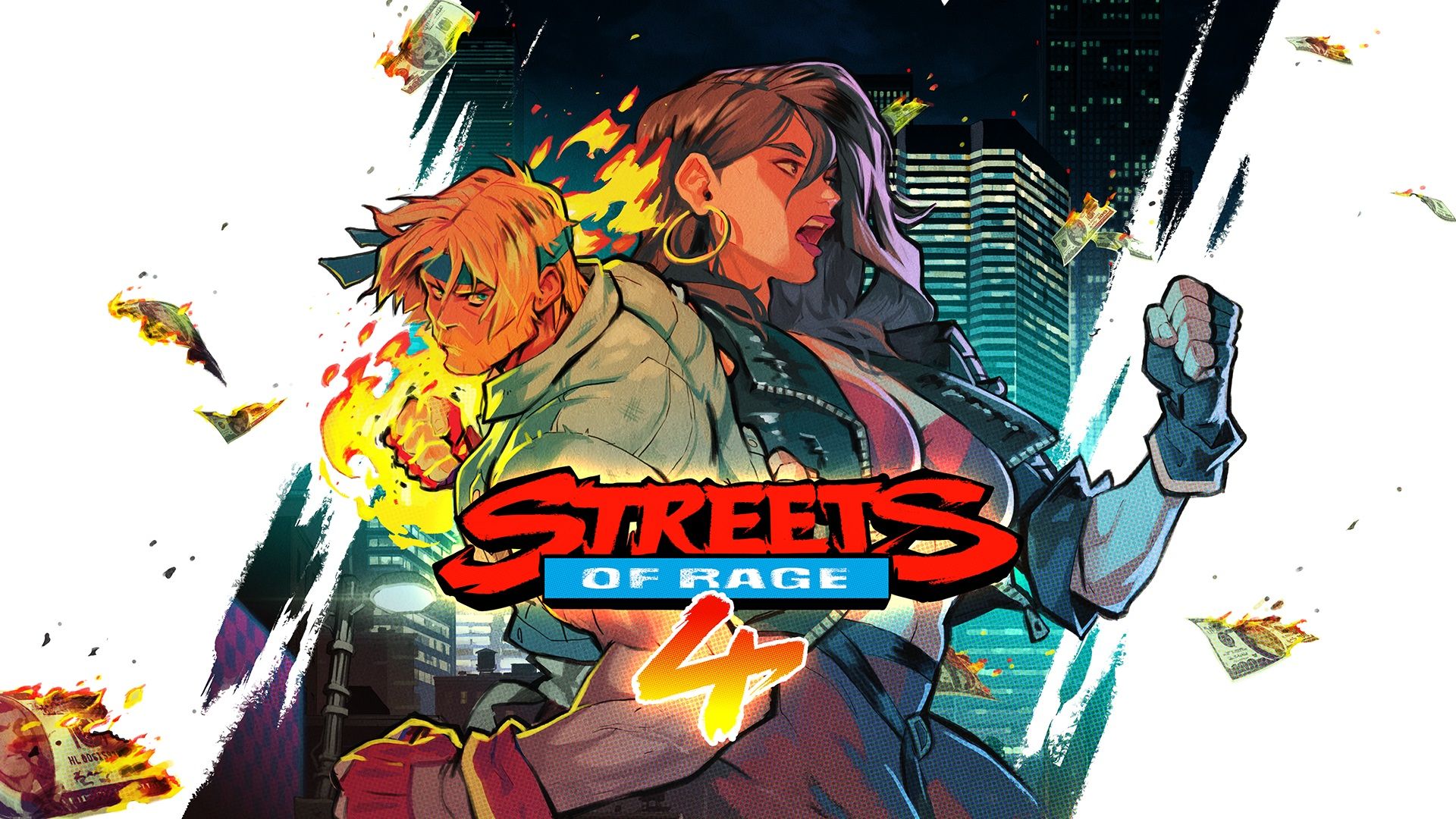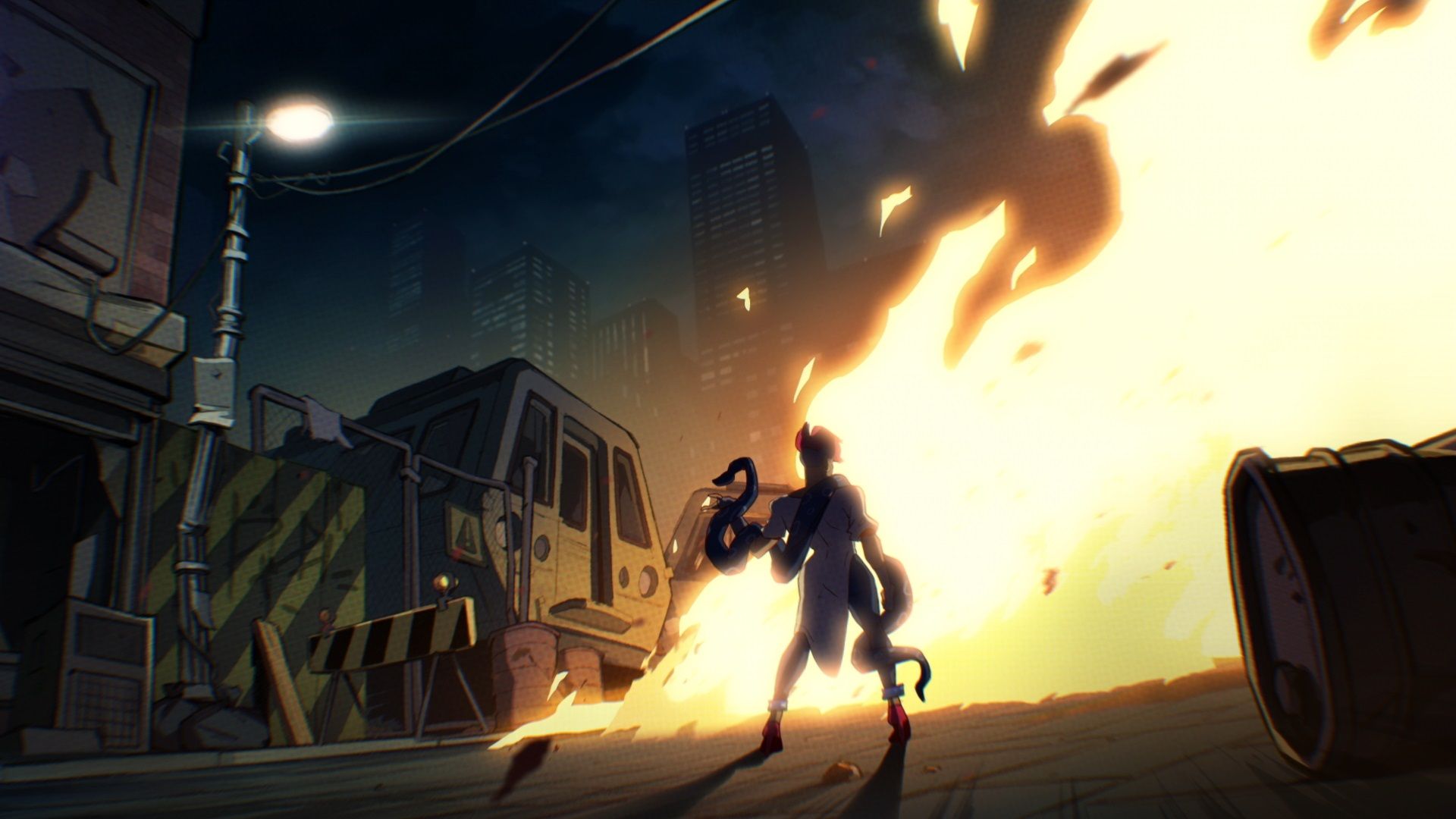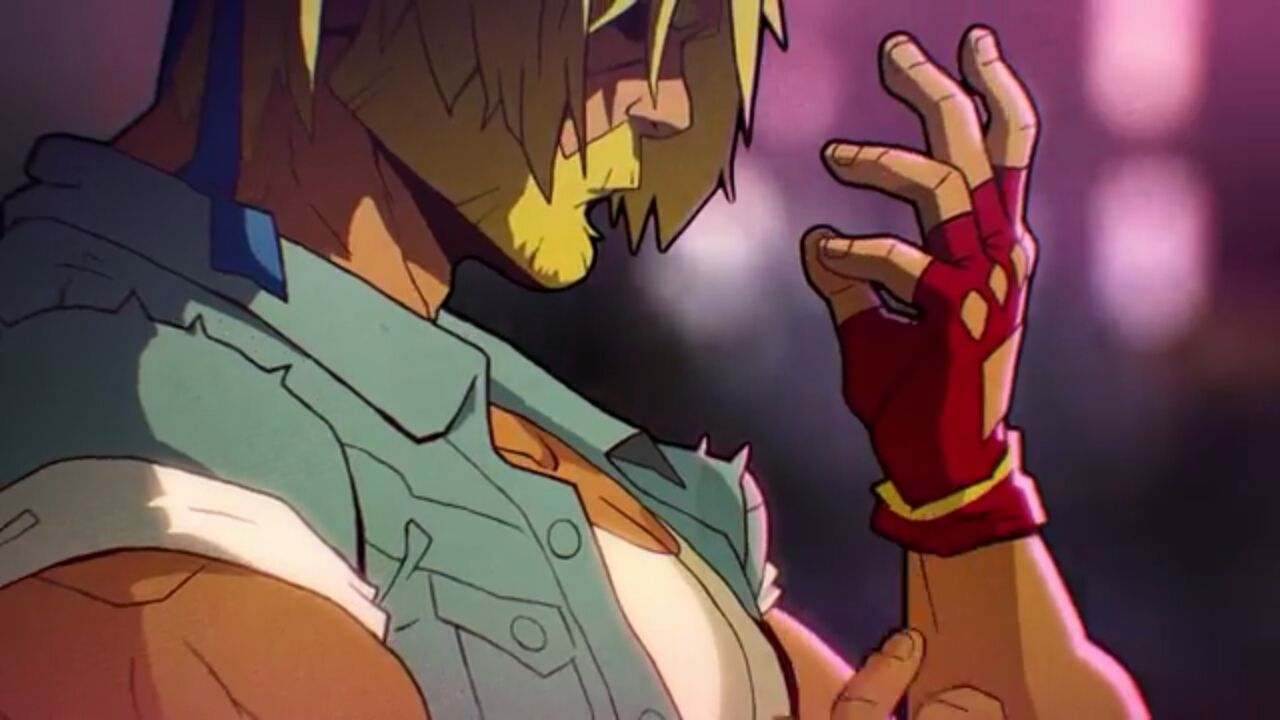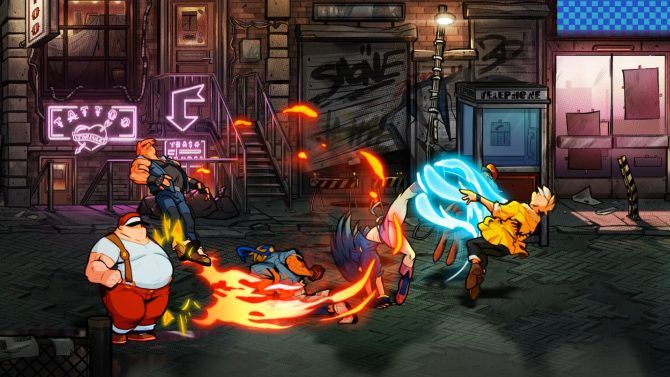To say it would be difficult for an old dog like me to not get excited upon hearing the recent news that Streets of Rage 4 is legitimately in development would be a massive understatement. It was a genuine moment of shock! Here's a series that I've been playing since I was a kid with a borrowed SEGA Genesis. It's a fondly remembered classic, and rightly so; the characters were cool, the music was excellent, and the entire franchise brought with it a gritty sound through great music. Of all the things that I remember from the series, the rain effects on stage 3 of the original game were quite charming, and tossing a guy over your shoulders to see him barreling into a group of thugs or smashing through a phone booth never got old.
The Streets of Rage trilogy made its mark on gaming to become one of the titles that defined the early 1990s. However, that was almost 30 years ago now. Is there still room in today's gaming landscape for a two-dimensional pick-up-and-play brawler, or are we expecting nostalgia alone to carry the weight on this one?
[pullquote]"The Streets of Rage trilogy made its mark on gaming to become one of the titles that defined the early 1990s."[/pullquote]
There's no denying that we live in a very different era now than we did when the original Streets of Rage hit the shelves. Everything in the games industry has changed so drastically that it becomes more and more interesting to look back and see exactly how we got here. What started off as a single button industry has evolved into a behemoth where complexity and story are often key elements in making a great game. Just looking at some of this year's heavy hitters alone shows how far we've come since the days of swinging lead pipes at punks next to neon-lit storefronts. God of War was a slow and steady narrative-driven epic where the action perfectly complemented the story, while Marvel's Spider-Man requires an acute sense of your surroundings to take out a number of enemies simultaneously using a variety of combat moves.
Both of these titles are fantastic and deserving of their critical acclaim, but they are also miles away from the simplicity of pick-up-and-play experiences like the Streets of Rage series. The difference between Kratos' latest adventure and something to the effect of Konami's Violent Storm is simply astronomical. The passing generations really have made a significant difference when it comes to
[pullquote]"At its core, Streets of Rage was certainly a casual game."[/pullquote]
However, there is a major determining factor at play here, one which we often overlook: the casual market. When you're a big "gamer," it becomes easy to get wrapped up in the hottest new titles, the most difficult of Dark Souls clones, the frame data of fighting games, or the latest major MMORPG expansions. These things are there for you to participate in, debate over, and enjoy.
However, there is a massive market for casual gaming too, and it's hugely important. It's through this demographic that the Nintendo Wii made its mark by selling more family-friendly titles like Wii Sports and Wii Fit. To really appreciate the popularity of pick-up-and-play games, look no further than Pokémon GO on iOS and Android; a game that instantly became a global phenomenon upon release, even though it was incredibly minimalistic.
At its core, Streets of Rage was certainly a casual game: it played on a three button set-up and allowed you to choose from a small array of characters and utilize their skill-sets to fist-fight your way through hordes of thugs and increasingly bizarre bosses with a little help from a heavily armed police car for back-up. As the series went on, it added more mechanics into the gameplay, but it never got out of hand or overly complex: special moves were added, along with the ability to roll in and out of the background in later installments, for example.
Both the gameplay and the extremely '90s concept of hardened ex-cops taking the law into their own hands and ridding the streets of crime--using a mix of brute force and martial arts--were very simplistic ideas. This meant that players could easily take control and get to grips with the gameplay using little to no effort. The bar for entry level play in Streets of Rage was so low that it made the series even more inviting: the same could be said about similar SEGA titles at the time like Golden Axe and Alien Storm.
[pullquote]"Just like the rest of the industry surrounding it, the genre of pick-up-and-play games has evolved too."[/pullquote]
Sometimes it's worth taking a step back and realizing that not all games are made for hardcore players: even some of the most popular titles are created with a pick-up-and-play mechanic to make it easier for entry-level players to get involved. The Tekken franchise is a great example of this; using a simple button layout that corresponds to the characters' limbs, the series made it simple for new players to create flashy combos with minimal effort. This was even a large point of the latest patch for Tekken 7, which event went to the level of adding in auto-combos. For those who want to dig deeper into the game, there is still a huge amount of depth and strategy to explore, which makes a game like Tekken 7 a prime example of being both a pick-up-and-play title and a game that's complex enough to feature on EVO's main stage year after year.
Pick-up-and-play games are an essential and hugely popular branch of gaming's ever-growing tree; however, just like the rest of the industry surrounding it, this genre has evolved too. While many AAA titles aim for a higher level of complexity, indie studios seem more than happy to create games that are easy to learn but hard to master. One of the best examples of this comes through a fantastic display of retro-inspired brawlers playing homage to games of yesteryear like Double Dragon Neon or Scott Pilgrim vs. the World: The Game, 2D platformers such as BIT.TRIP Runner, and puzzle games like Fez along with an abundance of twin-stick shooters and shoot 'em ups (aka "SHMUPs"). Digital stores are overflowing with great casual titles like these.
However, don't mistake the concept of "casual" gaming for lack of difficulty. Some of these titles can be absolutely brutal! Super Meat Boy is a fantastic example of how you can make a simple game that is still capable of pushing players' skills to the limit. It only needs two buttons - one to run and one to jump - but requires an amazing level of skill to complete, and even more so to complete its Dark World maps. Even 1994's Streets of Rage 3 is among the more challenging casual titles that a gamer can test their luck with.
[pullquote]"This style of couch co-op is a fantastic social experience and adds to the games' charm."[/pullquote]
The real joy of pick-up-and-play games is just how easy it is to get immersed in them. It gives them an increased lifespan over many other titles because they don't call for a player to commit a nearly endless number of hours in order to complete them. They are appealing to players with a long history of beating games and to those who simply like to sit down from time to time for a short shot glass of video game action.
Alongside this sense of immersion, games like Streets of Rage often encourage cooperation with a second player, driving players to help each other out and ensuring that each has the other's back. This style of couch co-op is a fantastic social experience and adds to the games' charm.
Casual games of this caliber have earned their place within the gaming sphere and within the hearts of players across generations, and I'm hoping that Streets of Rage 4 delivers on what we've seen from this genre's past. Nostalgia is a strong component to the game's appeal, but with a history of great casual games that have become exponentially stronger throughout recent years to draw inspiration from, there are high hopes for what Streets of Rage 4 could bring to the table when it launches.
Street of Rage 4 doesn't have a concrete release date as of yet, but if you want to get reacquainted with Blaze Fielding, Axel Stone, and the whole SoR crew, you can pick up the original trilogy as part of the SEGA Genesis Classics collection, which is available now on PlayStation 4, Xbox One, and PC.




